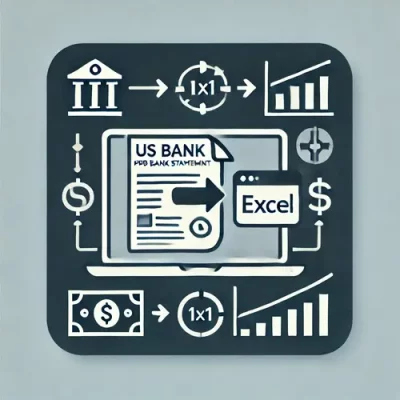US Bank provides up to 18 months of transaction history, but for longer tracking needs, you’re often left with only PDF statements.
They also require account owners to pay $9.95 monthly for them to get bank feeds for QuickBooks.
Manually copying transactions from PDF to Excel is time-consuming, error-prone, and can be frustrating, especially for high-volume or complex accounts.
Luckily, using a bank statement converter offers a faster, more accurate way to transform these PDFs into Excel, CSV, or QBO formats—eliminating the hassle of manual entry.
This article will guide you to the steps to convert US Bank bank statement to Excel efficiently, enhancing your productivity and accuracy.
Step 1: Upload US Bank Bank Statement to DocuClipper
Access your DocuClipper account—new users can begin with a free trial. When you are in, go to the “Convert” section for bank and credit card statements.
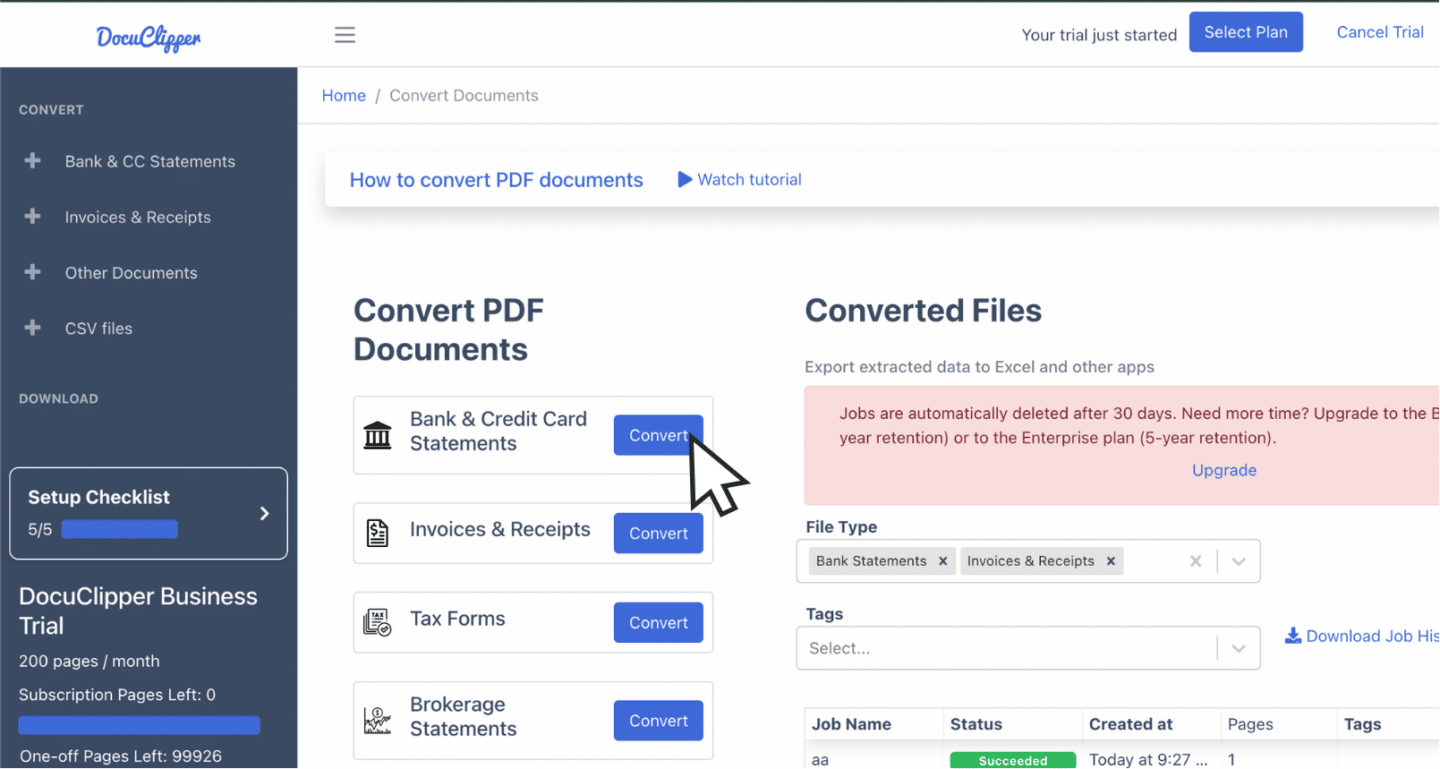
Drag and drop your US Bank PDF statements here, with the option to upload multiple files at once. You can label each file with tags or custom names for easy organization.
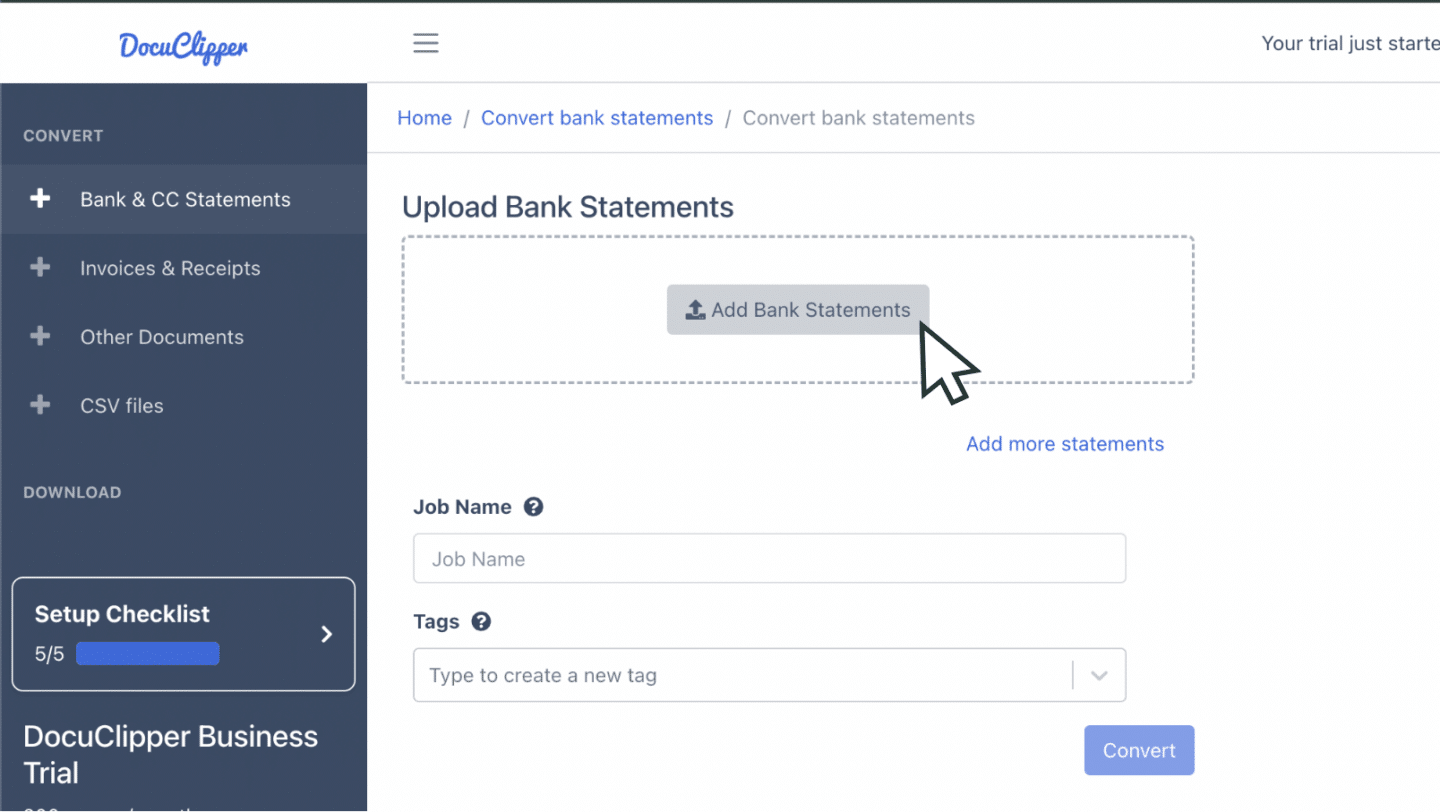
Alternatively, upload via email by sending statements to your unique email address found in account settings. Once uploaded, find your files under “Converted Files” on the left menu, to prepare for the next steps to convert your bank statements to Excel.
Step 2: Analyze US Bank Bank Statement
After uploading, you’ll see a side-by-side view of your original statement and its extracted data in a spreadsheet format, supported by a dashboard.
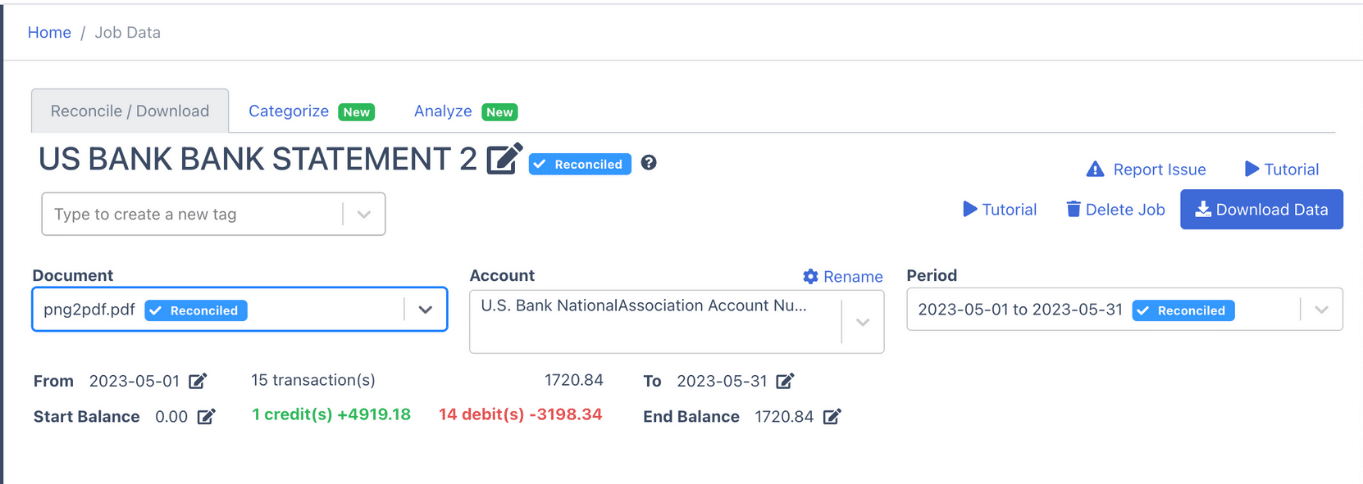
This is for you to examine each bank transaction for discrepancies in amounts, dates, or totals that may arise from bank errors.
If you are working with scanned paper statements, pay attention to any scanning projection errors, as these can affect data accuracy.
Step 3: Reconcile US Bank Bank Statements
After the review, the software automatically reconciles your bank statement data. When there are discrepancies, the status reconciliation of the bank statement will show as incomplete.
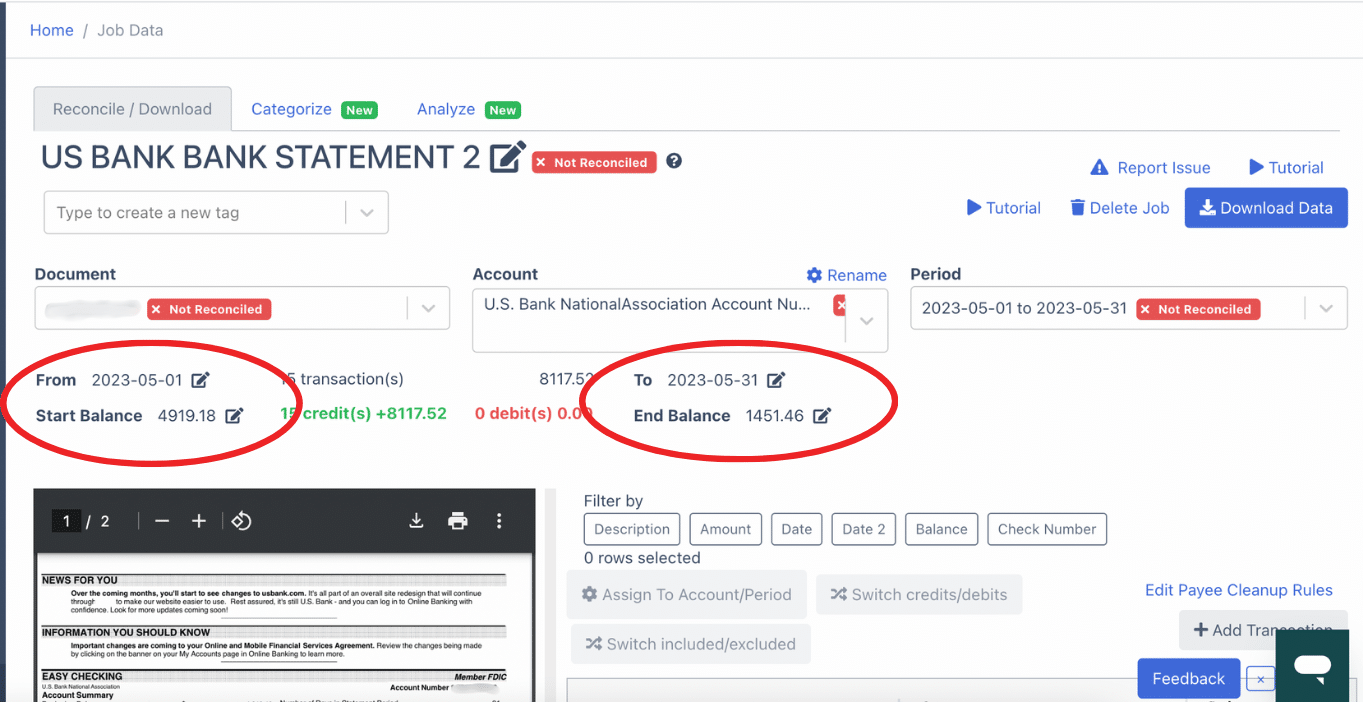
To address this, adjust transaction details like amounts, dates, or descriptions by selecting the arrow next to the relevant entry. If additional entries are needed, click “Add Transaction,” fill in the required details, and ensure credits and debits are categorized accurately.

Once all adjustments are complete, your US Bank statement will be fully reconciled and ready for export.
Step 4 Export US Bank Bank Statement to Excel, CSV, QBO
With your US Bank bank statement fully reconciled, you’re ready to export it to Excel, CSV, or QBO formats. Click “Download” to initiate the export and select the format you want.
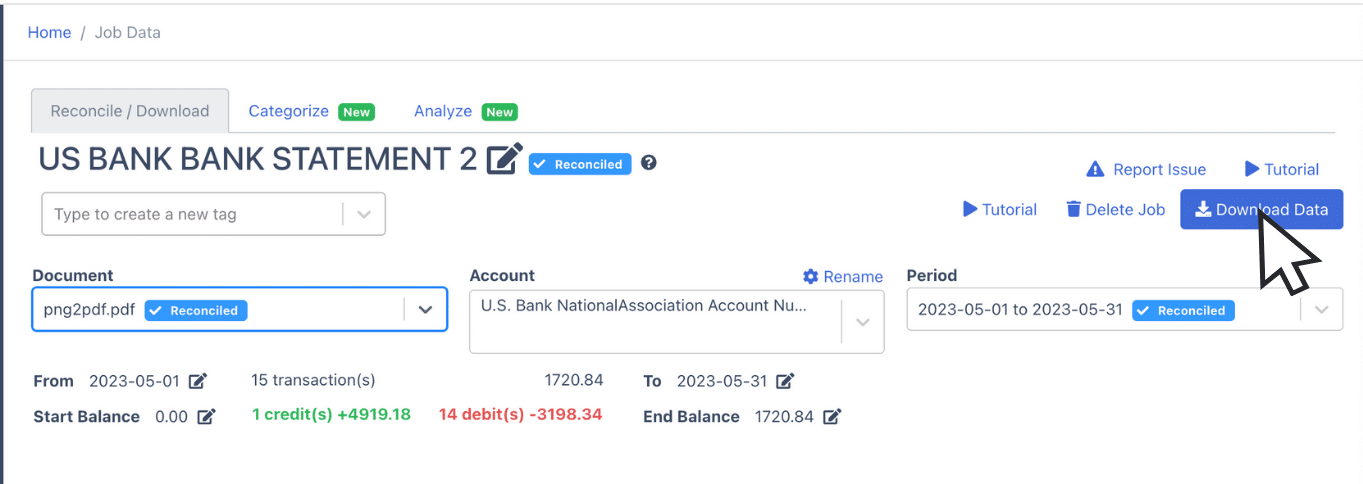
Export US Bank Bank Statement to Excel
To export your US Bank statement as an Excel file, open the export menu and choose “Excel.” Select the “XLSX” format for compatibility with most spreadsheet software.
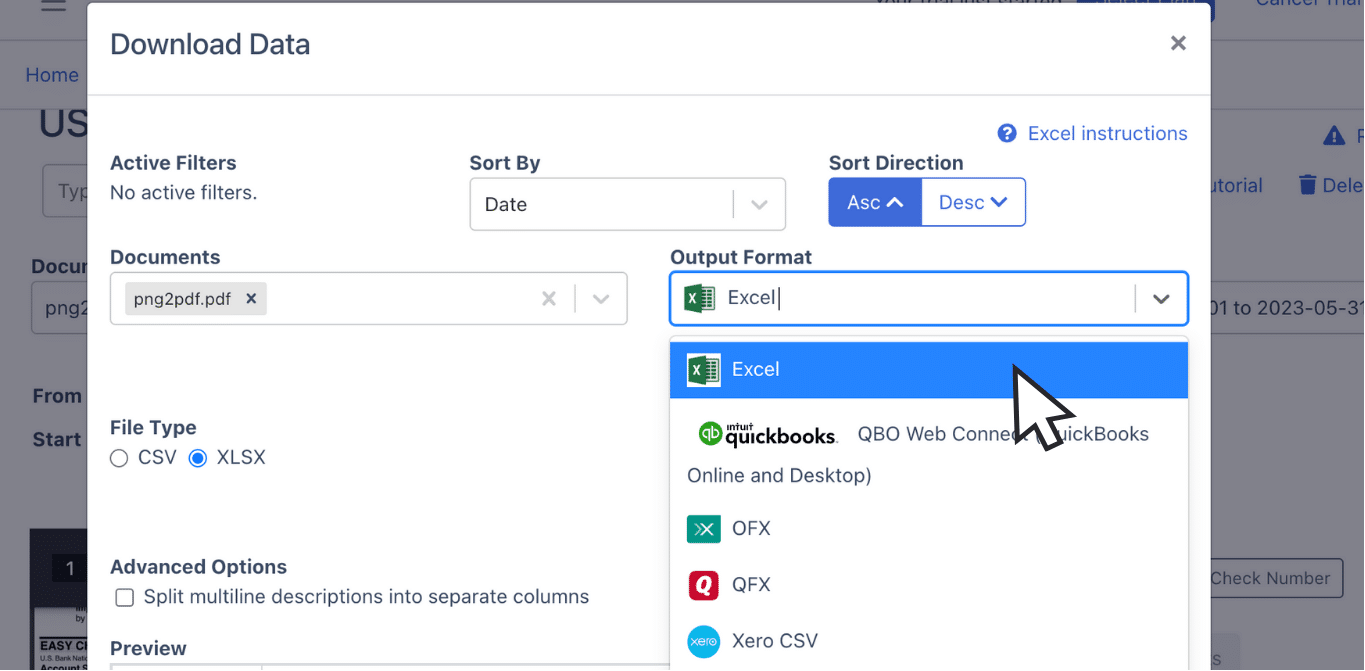
After selection, click “Download” to save the file, which will be located in your Downloads folder, ready for use in your accounting tasks.
Export US Bank Bank Statement to CSV
Many accounting platforms, including Quicken, Xero, Sage, MYOB, Relate, and NetSuite, require statements for importing in CSV format.
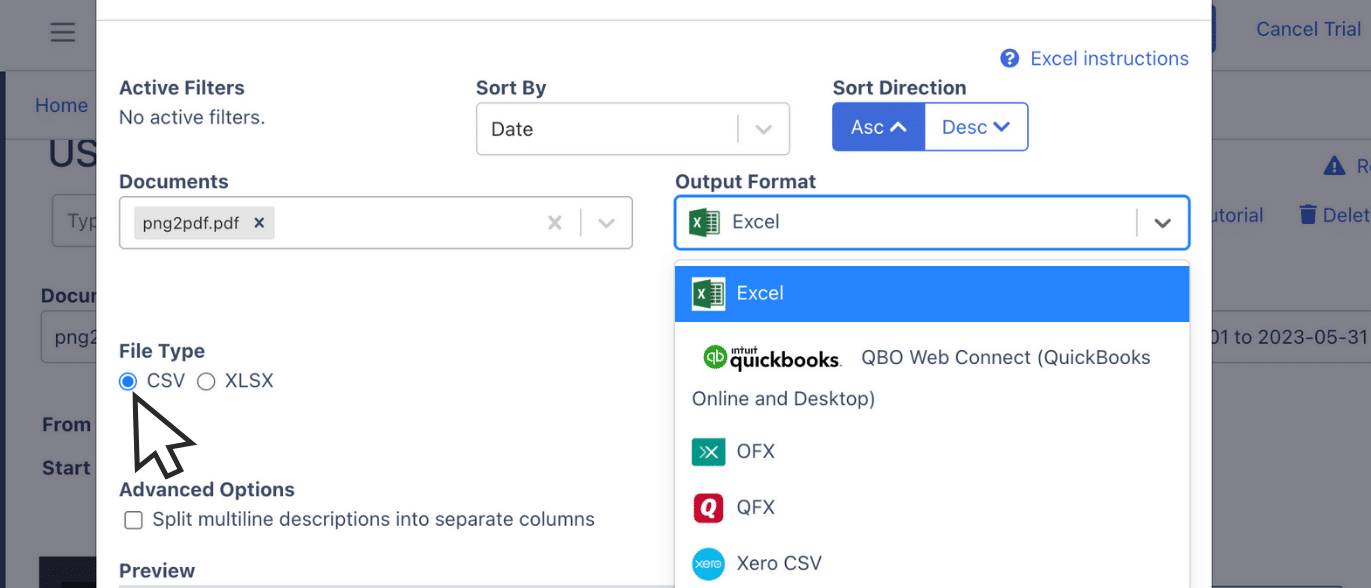
To export your US Bank statement as a CSV file, open the export menu, select “Excel,” and then choose “CSV” from the dropdown options.
Ready-made formats are also available for specific software.
Export US Bank Bank Statement to QBO
For QuickBooks users, exporting in QBO format allows you to easily upload it in QuickBooks software.
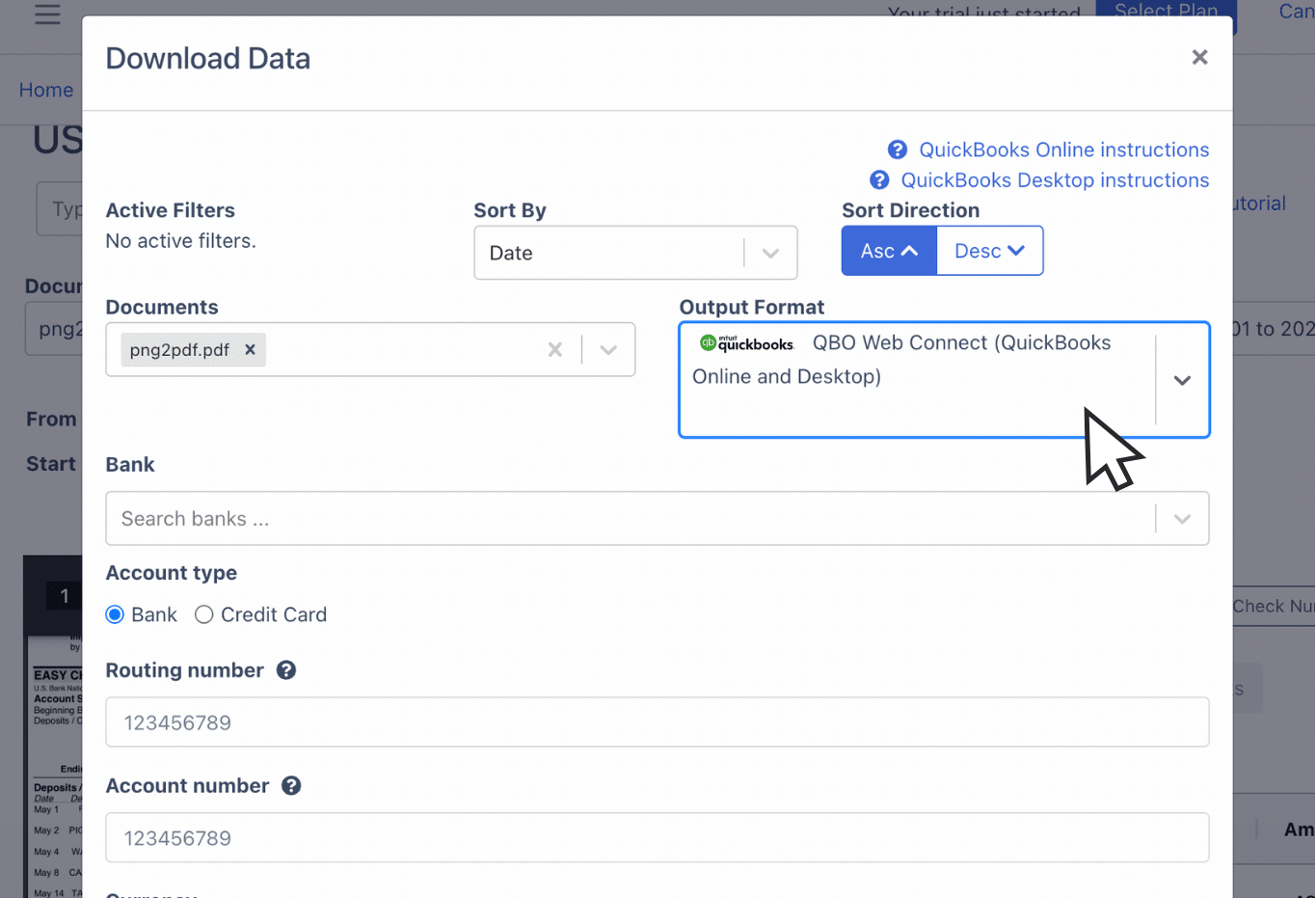
Open the export menu, select the QBO option, and fill in any necessary fields, such as bank account numbers, names, and classifications.
Once filled, download the file, ready for direct import into QuickBooks for efficient accounting.
Also, we have more guides on how to import bank statements into different software:
- Import bank statements into QuickBooks
- Import bank statements into Sage
- Import bank statements into Xero
- Import bank statements into NetSuite
Step 5: Configure the Output Format
Review the spreadsheet’s output format to ensure it meets your needs before you click “Download Data”.
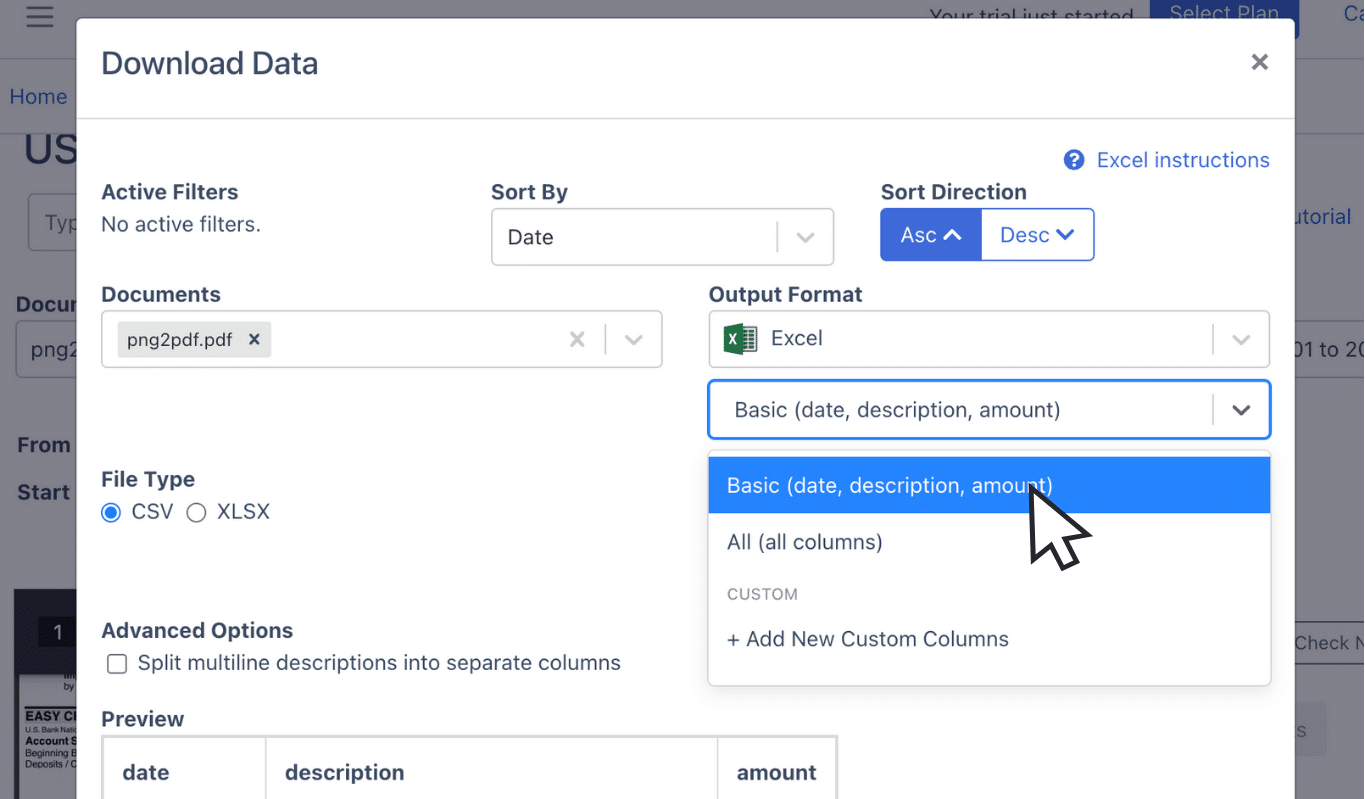
You can adjust settings like date formats or reorder columns as needed. DocuClipper has a default format that can be customized by selecting “Customization,” allowing you to customize the layout for a fully personalized setup
How to Download US Bank Bank Statements
To download my transactions and account history using Online banking:
- Select Accounts at the top of the page, then choose the account for which you want to download the transaction history.
- From the Activity tab select Download. This can be found right above the list of transactions.
- Choose the date range and file format you’d like to use, then select Download.
Final Advice
Banks often provide statements in limited formats, such as bank feeds or CSV, leaving accountants primarily with PDF files.
As these PDFs accumulate, managing and processing bank statements can become increasingly difficult. DocuClipper streamline this process by transforming PDFs into formats like Excel, CSV, or QBO, saving time, reducing errors, and boosting productivity.
Automating this conversion speeds up and frees valuable time for more complex accounting tasks, ultimately reducing operational costs.
Why Use DocuClipper to Convert US Bank Bank Statements
DocuClipper is a web-based software designed to convert PDF bank statements into formats like XLS, CSV, and QBO. It uses automatic OCR technology to accurately identify and extract data fields from bank statements.
DocuClipper integrates with popular accounting software such as QuickBooks, Sage, and Xero, facilitating seamless data transfer and management. Its transaction categorization feature allows transactions to be organized and assigned by groups.
DocuClipper can also process credit card statements, brokerage statements, receipts, and invoices.
FAQs about US Bank Bank Statement to Excel
Here are some frequently asked questions about how to convert US Bank bank statement to Excel:
Can I export my US Bank bank statement to Excel?
Yes, you can export your US Bank bank statement to Excel. While US Bank may provide statements in PDF format, using a bank statement converter like DocuClipper allows you to upload the PDF and convert it directly into an Excel (XLSX) file. This makes it easier to manage, analyze, and integrate the data into your accounting tasks.
How do I download a US Bank bank statement to a CSV file?
To download your US Bank bank statement as a CSV file, follow these steps:
- Log in to your US Bank online account and navigate to the account with the statement you want to download.
- Go to the Activity tab, where you’ll see an option to Download your transaction history.
- Choose CSV as the file format and specify the date range for the transactions you need.
- Click Download to save the file to your device, ready for import into accounting software or spreadsheet applications.
Learn More
Looking for more types of bank statements to convert? Check out our library about bank statement conversion:
- How to Convert BoA Bank Statement to Excel, CSV, and QBO in 1 Minute or Less
- How to Convert HDFC Bank Statement to Excel, CSV, and QBO in 1 Minute or Less
- How to Convert Chase Bank Statement to Excel, CSV, and QBO in 1 Minute or Less
Or use these resources to learn more about accounting:
